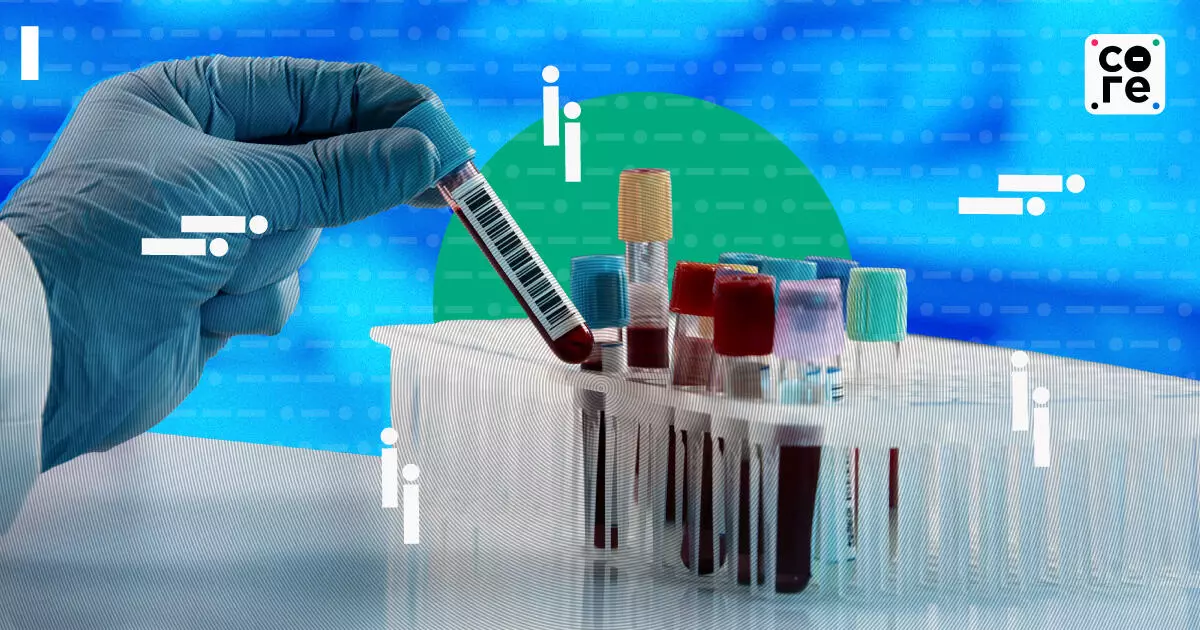
The Diagnostics Race In 2025 As India Battles Lifestyle Diseases
With lifestyle diseases rising and diagnostics advancing through AI, 2025 will see India’s healthcare sector grapple with surging demand and a less healthy population.

My dad often joked that everyone he knew who walked into a hospital always came out on a stretcher or in a wheelchair. His corollary was: don’t do lab tests or blood work unless specifically advised, because you’ll always find out things you’d rather not know.
Depressing as it sounds, this looks like 2025 is the year where we will find out about health problems we already had and, to be fair, should have known about.
Diagnostics Growth Mirrors Rising Health Challenges
Last week, in the largest-ever primary fundraise in the Indian diagnostics sector, Chennai-based Neuberg Diagnostics raised Rs 940 crore from Kotak Fund for growth and expansion. Founded in 2017, Neuberg, now less than a decade old, aims to expand into personalised medicine and integrated diagnostics, among other areas, according to Business Standard.
Meanwhile, Mumbai-based Metropolis Laboratories, India’s second-largest pathology chain, recently acquired cancer diagnostics firm Core Diagnostics in New Delhi for close to Rs 250 crore. Metropolis stated that super-speciality tests now constitute 37% of its revenue, a figure that is expected to rise to 41% with Core’s acquisition.
India recorded around 1.5 million cancer cases in 2023, a number that is expected to grow as non-communicable diseases continue to rise rapidly in the country. This growth, however, is not necessarily due to more patients developing cancer, but rather...
My dad often joked that everyone he knew who walked into a hospital always came out on a stretcher or in a wheelchair. His corollary was: don’t do lab tests or blood work unless specifically advised, because you’ll always find out things you’d rather not know.
Depressing as it sounds, this looks like 2025 is the year where we will find out about health problems we already had and, to be fair, should have known about.
Diagnostics Growth Mirrors Rising Health Challenges
Last week, in the largest-ever primary fundraise in the Indian diagnostics sector, Chennai-based Neuberg Diagnostics raised Rs 940 crore from Kotak Fund for growth and expansion. Founded in 2017, Neuberg, now less than a decade old, aims to expand into personalised medicine and integrated diagnostics, among other areas, according to Business Standard.
Meanwhile, Mumbai-based Metropolis Laboratories, India’s second-largest pathology chain, recently acquired cancer diagnostics firm Core Diagnostics in New Delhi for close to Rs 250 crore. Metropolis stated that super-speciality tests now constitute 37% of its revenue, a figure that is expected to rise to 41% with Core’s acquisition.
India recorded around 1.5 million cancer cases in 2023, a number that is expected to grow as non-communicable diseases continue to rise rapidly in the country. This growth, however, is not necessarily due to more patients developing cancer, but rather because more cases are being diagnosed, often at earlier stages than before.
Cancer testing alone is projected to grow at nearly 18% annually. If this trend applies to cancer, it is likely to extend to other conditions such as cardiovascular and lifestyle diseases, which are not just increasing but surging across India.
Latest data from pharma industry tracker Pharmarack indicates that more Indians were treated for neurological conditions, including depression, in 2024. The firm attributes this to a growing willingness among Indians to seek diagnosis—the critical step before receiving formal treatment. Once diagnosed, patients are increasingly opting for treatment and purchasing necessary medicines.
All of this spells good news for pharmaceutical companies that treat these conditions and diagnostic companies that help identify them.
The Indian diagnostic labs market is estimated to be worth around US $18 billion, or Rs 1,51,000 crore, according to a report hosted on Research & Markets.
AI and Lifestyle Diseases Drive India’s Diagnostics Boom
The diagnostics business can be categorised into passive diagnostics—such as pregnancy-related and preventive diagnostics done as required—and active diagnostics, which respond to lifestyle diseases and, at the extreme, pandemic situations like the one we saw four years ago. This is my definition.
Then there is the role of artificial intelligence. Companies like AstraZeneca are partnering with Indian firms such as Cure.AI to speed up chest X-ray scans, automating the detection and localisation of up to 29 markers, including those indicative of potential lung cancer. Diagnostics is also advancing in areas like genomic testing, which aids in early detection and personalised medicine.
Between increasing lifestyle diseases and our willingness to determine what is wrong with us, if something indeed is, the market for healthcare on the diagnostics and of course the cure side is set to grow rapidly in India in the coming years.
Increased diagnosis will most likely show up a less healthy nation than what we think we are. Rapid economic strides will mean hard work—I'm not getting into how many hours—which will call for a healthy workforce.
As rapid economic growth demands a healthy workforce, getting checked, tested, or diagnosed will, unfortunately, become something we do more often in 2025.
With lifestyle diseases rising and diagnostics advancing through AI, 2025 will see India’s healthcare sector grapple with surging demand and a less healthy population.

